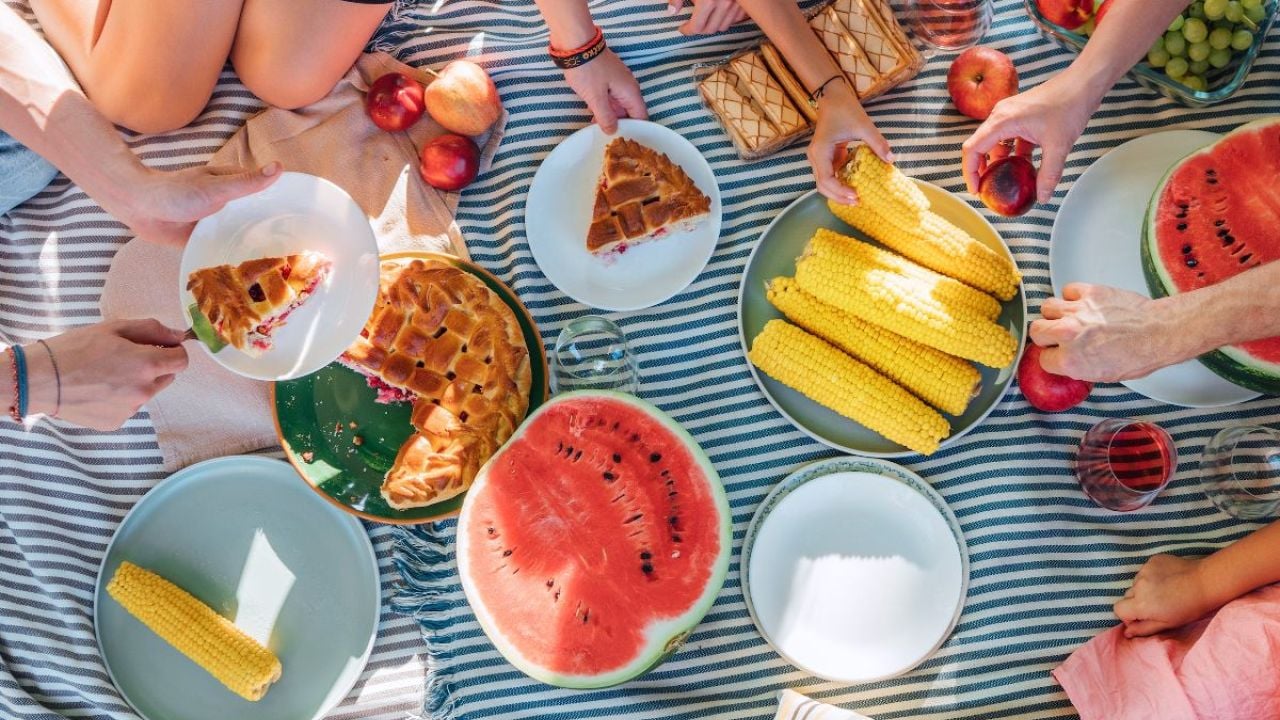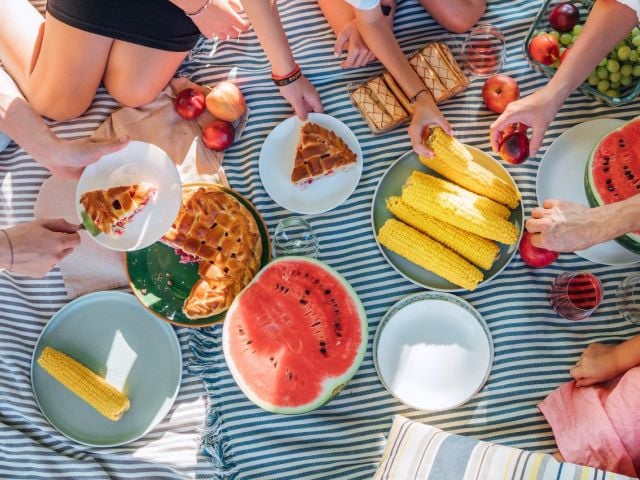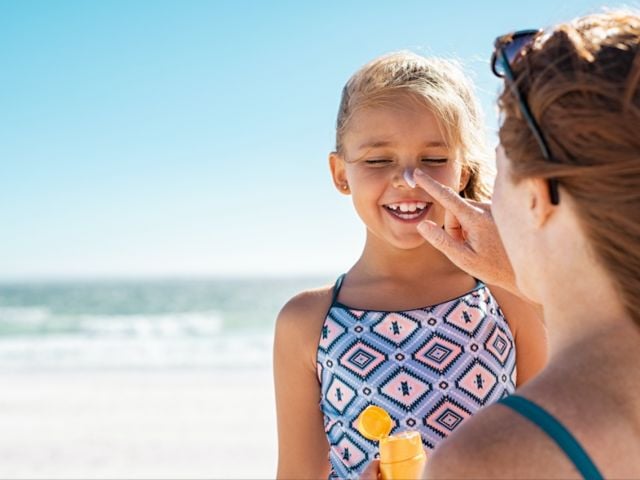
Summer picnics are all about enjoying good food and great company outdoors. As you grab a blanket and fill your basket with delicious goodies, remember to protect yourself against the toxic chemicals found in many picnic essentials.
Here’s how to pack a healthier picnic.
Limit pesticides and harmful food chemicals in your picnic spread
When planning your menu, start with produce.
Some of it may have pesticide residue, and it’s best to avoid exposure. Pesticide residues on produce are linked to hormone disruption, lower fertility, cancer and other poor health outcomes.
To help, every year we release our Shopper’s Guide to Pesticides in Produce™. The Dirty Dozen™ lists the produce with the most residue, which it’s best to buy organic, whenever possible. The Clean Fifteen™ lays out the fruits and vegetables with the lowest residue. These are OK to buy non-organic, if need be.
It’s best to avoid piling on the packaged foods. These are often ultra-processed and bring with them a lot of health concerns. These are best had as a treat, not as the basis of your meal.
If meat and dairy are part of the feast, you may want help deciphering confusing labels and claims. EWG’s Meat and Dairy Decoder provides guidance on products with dependable labels, highlighting certifications such as Animal Welfare Approved, Certified Humane and USDA Organic.
Food Scores can help you build a safe and healthy picnic spread. It rates packaged food on the basis of nutrition, ingredient concerns and processing. Choosing foods with lower scores minimizes exposure to unhealthy additives and food chemicals, so your picnic is relatively healthy.
Be cautious when selecting:
- Meat products: 52 percent of these products contain ingredients of higher concern.
- Foods with added sugars: High percentages of added sugars can be found in a variety of common picnic foods, including deli meat, crackers, salad dressing, and nut butter.
Explore this User’s Guide to learn how to navigate and interpret Food Scores.
Don’t add to the plastic pollution crisis
Traditional plastic food containers can contain chemical additives and shed microplastics into food, exposing us to endocrine disruptors and other health harms.
Swap plastic containers for reusable glass, stainless steel or ceramic options to minimize chemical and plastic exposure. For instance, the Klean Kanteen Lunch Food Box is an excellent choice to keep fruits and vegetables fresh.
Also consider stainless steel cups — they’re practical and reusable.
Replace plastic utensils with stainless steel. Or consider Bamboo utensils, which are both lightweight and durable, and many come with a carabiner clip for easy attachment to your bag or basket.
A picnic blanket is essential for the ultimate outdoor dining experience. But many blankets on the market today have been treated with “forever chemicals” known as PFAS. These substances have been linked to cancer, reproductive problems, increased cholesterol and other poor health outcomes.
To limit your potential PFAS exposure, avoid outdoor blankets marketed as waterproof or stain-resistant. Learn more about PFAS in textiles and how to protect yourself here.
This small step will add important sun protection
When eating your meal al fresco, make sure to guard against the sun’s harmful ultraviolet, or UV, rays. Many sunscreens fail to safely and adequately protect against sunburn and skin damage, which could lead to skin cancer like melanoma. For safe and effective SPF products, explore EWG’s 2024 Guide to Sunscreens.
This guide highlights products that offer reliable broad spectrum protection, including some that are EWG Verified®, which means they’re made free of toxic chemicals and according to our strictest standards of transparency.
The guide also provides practical sun safety tips.
- Look at the bigger picture. Sunscreen is just one part of sun safety. Other measures, such as covering up and finding or making shade are also important ways to protect your skin and limit exposure.
- Steer clear of potentially harmful chemicals. Avoid oxybenzone in sunscreen. This compound has been linked to hormone disruption.
- Avoid spray sunscreens because of inhalation risks.
By consuming fresh foods, selecting safe picnic gear and choosing healthier sun care products,you can enjoy a delightful, worry-free summer picnic. Embrace the warmth while keeping your well-being front and center. Here's to many more sunny and delicious picnic days ahead!



